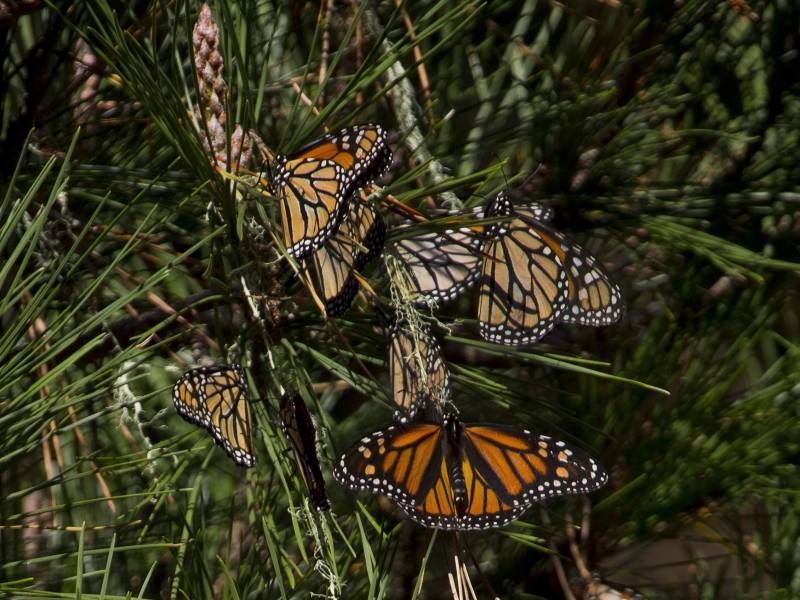“That first generation that’s born in the new year in California is really the generation that’s going to continue the migration.” Pelton said. “They’re going to populate the western United States.”
Eastern monarchs make a similar migration to Mexico for the winter months.
“California’s the only place in the U.S. where monarchs spend the winter in large numbers and that is worth protecting,” Pelton said.
Reasons for the Decline
Samantha Marcum, a biologist with the U.S. Fish and Wildlife Service, says habitat loss, the use of pesticides, disease and the changing climate have all likely contributed to the decline of western monarchs.

“There’s no singular reason for the extreme drop in numbers over the last two to three decades.” Marcum said. “There’s several factors.”
One major reason for the drastically reduced numbers, she says, is the loss of coastal forest groves, where monarchs can safely roost in the winter months, and their shrinking springtime breeding habitat, due to land development, forest management practices and wildfire.
“Drought, increased storm frequency and intensity, and temperature extremes” have also likely made California a less hospitable place for monarchs, said Marcum.
Federal officials are considering listing monarch butterflies for protection under the Endangered Species Act. A decision is expected in December.
Marcum says protecting and restoring the forest groves where monarchs spend their winter on the California coast will be key to their recovery. The Xerces Society recommends Californians plant native milkweed in inland breeding areas, as well as nectar-producing flowers for monarchs to feed on.
Pelton says citizen science efforts like monarch counts help researchers monitor butterfly populations and target conservation efforts. The Western Monarch Milkweed Mapper and the iNaturalist App are two ways people can record their own monarch sightings.
“Even if you’re not someone that necessarily thinks of yourself as someone who likes bugs, you probably know what a monarch looks like,” Pelton said. “The fact that they move and travel all over the United States and Canada and Mexico is just a really incredible story of a single species connecting us across the country.”
from Hacker News https://ift.tt/394m8RY
No comments:
Post a Comment
Note: Only a member of this blog may post a comment.